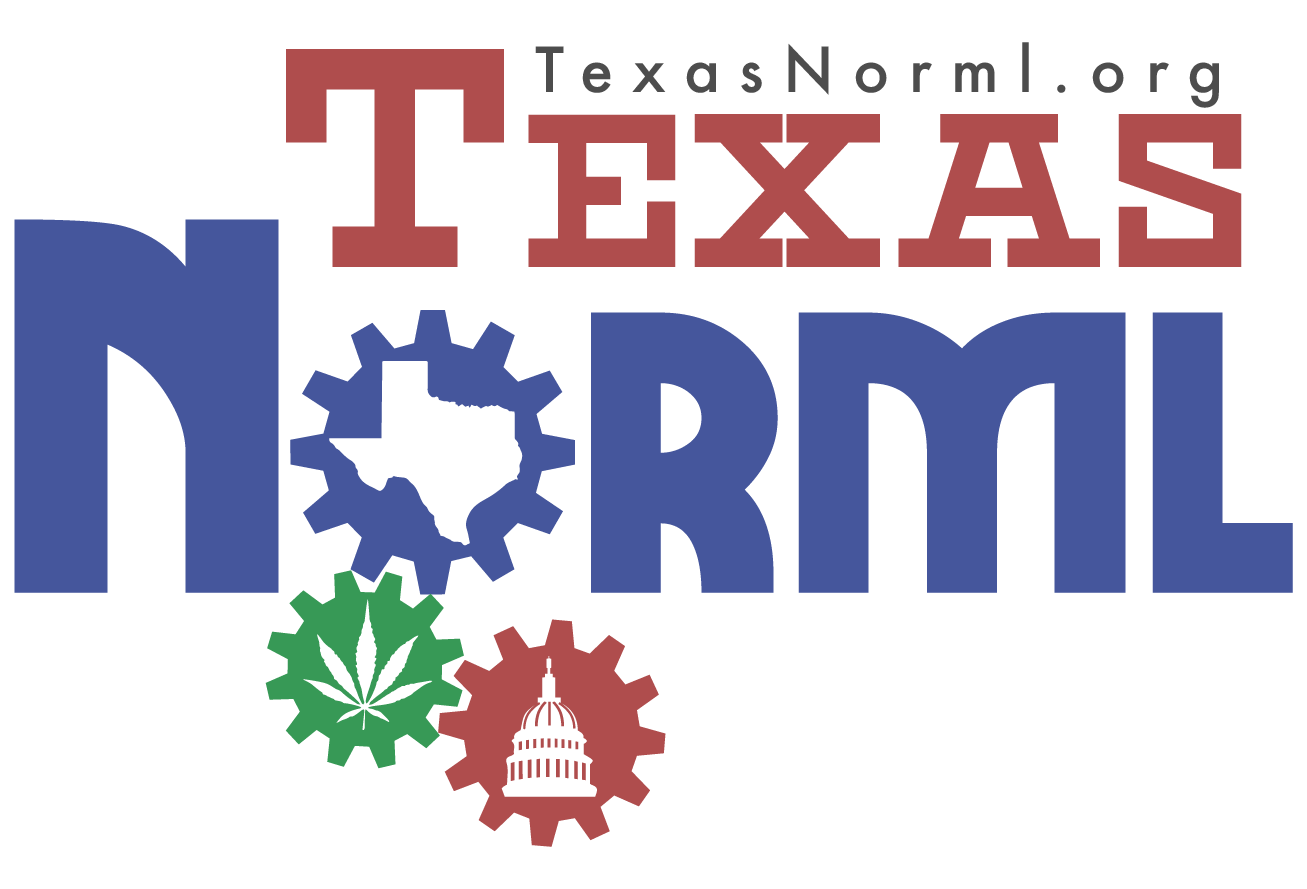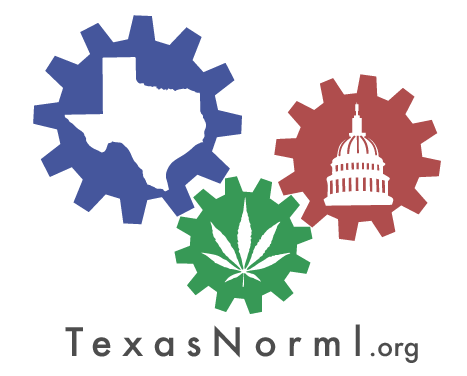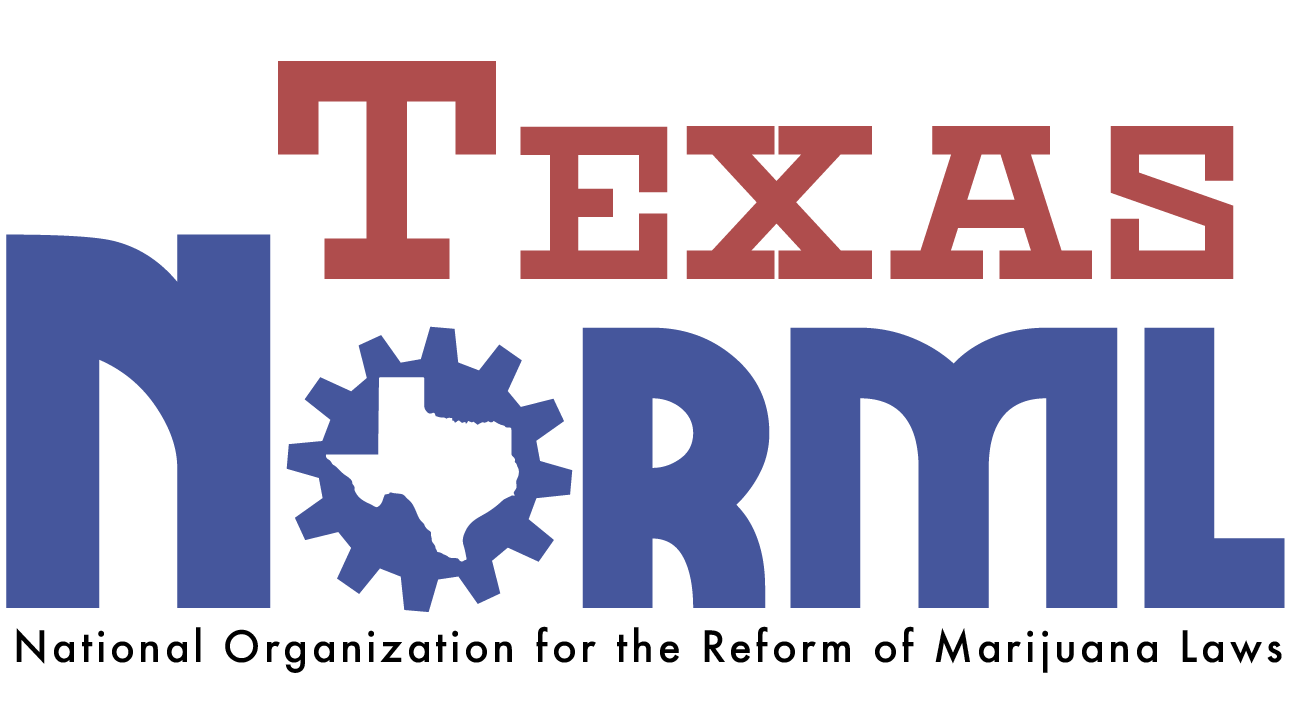TX NORML open meeting notes, December 7th, 2011
During last month’s meeting we covered these stories:
– White house gives pitiful response to NORML’s “We The People” petition, which garnered more than 74,000 signatures, far more than any other petition.
– RAND Corporation removes information about it’s study which correlated increased crime with the closing of medical marijuana dispensaries, caving to pressure from DAs.
– Dutch Govt. announced plans to criminalize “potent” cannabis strains which contain above 15% THC
– Researchers at Johns Hopkins find that drug testing drives people to use synthetic designer drugs such as spice & K2
– Researchers at Temple Univ. report that CBD completely prevents chemotherapy-induced neuropathy
– CDC reports the number of overdose deaths from painkillers more than tripled over the past decade
– Researchers at Imperial College of London report alcohol is more than twice as harmful as cannabis
– Researchers at Kaiser Permanente report alcohol consumption increases lung cancer risk by 30%
– Montana voters will decide in 2012 whether to reinstate provisions of their 2004 Medical Marijuana law, which have been gutted by their Legislature
– Rhode Island’s Gov. pulls plug on their dispensary program
– California Medical Association, state’s largets doctors’ group, makes call for legalizing and regulating cannabis
– Dept. of Justice formally announced increased targeting of California medical cannabis providers, and in response the California Attorney General & legislators there openly criticized the Federal Govt.
– For the first time ever, Gallup reports that more Americans support marijuana legalization than oppose it
Now for news from the past month:
Survey finds Cannabis Use Associated With Reduced Intake Of Prescription Drugs
Survey data collected from the members of a prominent Berkeley, California medical marijuana collective indicates that most patients reduce their intake of conventional medications following their initiation of cannabis therapy.
The results of an anonymous survey found that 66 percent of respondents said that they consumed cannabis as a prescription drug substitute.
Many respondents said that they preferred cannabis because it possesses fewer health side effects than conventional medications.
Some 70 percent of respondents said that they used cannabis to treat a chronic condition, such as diabetes or arthritis. Just over half said they used marijuana for pain relief, including arthritis, migraines, and accident-related injuries.
Study: Vaporized Cannabis Augments The Analgesic Effects Of Opiates In Human Subjects
According to clinical trial data published online in the journal Clinical Pharmacology & Therapeutics, investigators at the University of California, San Francisco assessed the use of vaporized cannabis over a five-day period in chronic pain subjects who were on a regimen of twice-daily doses morphine or oxycodone.
Participants in the trial inhaled cannabis vapor on the evening of day 1 of the study, three times a day on days 2 through 4, and in the morning of day 5. Subjects’ extent of chronic pain was assessed daily.
Researchers determined that subjects’ pain “was significantly decreased after the addition of vaporized cannabis” and surmised that cannabis-specific interventions “may allow for opioid treatment at lower doses with fewer [patient] side effects.”
Another Study Finds Cannabis Is Beneficial To Patients With Inflammatory Bowel Disease
We’ve discussed research on this subject many times over the past several months, and here’s more on it.
The inhalation of cannabis increases quality of life, mitigates disease activity, and promotes weight gain in subjects with inflammatory bowel disease (IBD), according to clinical trial data published online in the scientific journal Digestion.
Investigators at the Chaim Sheba Medical Center in Tel Aviv, Israel assessed the efficacy of inhaled prescription cannabis in patients with long-standing IBD, such as Crohn’s disease.
They concluded, “Three months’ treatment with inhaled cannabis improves quality of life measurements, disease activity index, and causes weight gain and rise in BMI in long-standing IBD patients.”
Prescription Drug Efavirenz Yields False Positive Test Results For THC, Study Says
Prescription doses of the antiretroviral prescription drug efavirenz (EFV) cross-reacts in urine immunoassay tests for the carboxy THC metabolite, according to clinical data published online in the journal Annals of Clinical Biochemistry, by researchers at the University of Pretoria in South Africa.
Antiretroviral drugs are prescribed for patients with HIV.
Hospice Health Professionals Support Legalization Of Cannabis For Therapeutic Use
A majority of hospice health professionals favor allowing the legally regulated use of cannabis for terminally ill patients, according to survey data published online in the Journal of Palliative Medicine.
Cannabinoid, CBD, Improves Locomotor Function & Reduces Injury In Animal Model Of Spinal Cord Injury
The administration cannabidiol or (CBD), a non-psychotropic cannabinoid, improves mobility in rats with spinal cord injuries, according to preclinical data published in the journal Neurotoxicity Research.
Investigators at the University of Sao Paulo in Brazil assessed the impact of CBD on motor function in rats with cryogenically induced spinal cord injury. The animals received injections of a placebo or CBD immediately before, three hours after and daily for six days after surgery.
Researchers reported that cannabidiol-treated rats exhibited higher locomotor skills at the end of one week.
“Cannabidiol improved locomotor functional recovery and reduced injury extent, suggesting that it could be useful in the treatment of spinal cord lesions,” investigators concluded.
Previous studies of CBD have documented the cannabinoid to possess a variety of therapeutic abilities, including anti-inflammatory, anti-diabetic, anti-epileptic, anti-cancer, and bone-stimulating properties.
Medical Marijuana Legalization Not Associated With Increases In Youth Pot Use, Study Says
Legalized medical marijuana is not associated with increases in young people’s self-reported use of the substance, according to survey data presented last week by researchers at the annual meeting of the American Public Health Association.
A team of investigators from Brown University in Rhode Island, Boston Medical Center, and the Oregon Health & Science University compared trends in adolescents’ use of cannabis in the states of Rhode Island and Massachusetts. Rhode Island lawmakers enacted medical marijuana legislation in 2006 while Massachusetts’ law does not allow for the legal use of the drug.
Based on their analysis of 32,570 students, investigators determined that while marijuana use was common throughout the study period, there were no statistically significant differences in teens’ use of cannabis between the two states in any year.
“Our study did not find increases in adolescent marijuana use related to Rhode Island’s 2006 legalization of medical marijuana,” stated the study’s lead investigator in a press release.
Researchers at the Texas A&M Health Science center had previously published similar findings, determining, “[C]onsistent with other studies of the liberalization of cannabis laws, medical cannabis laws do not appear to increase use of the drug.”
California Society Of Addiction Medicine Calls For The ‘Constructive Regulation’ Of Marijuana
The California chapter of the American Society of Addiction Medicines (ASAM) has issued a paper calling for the legalization and regulation of the adult use of cannabis.
The paper, titled ‘Youth First: Reconstructing Drug Policy, Regulating Marijuana, and Increasing Access to Treatment in California,’ was initially presented at their State of the Art Conference in October.
It states:
“Adolescents in California have easy access to purchasing and using marijuana. California’s current medical marijuana laws have not had significant impact on access, and have made physicians de facto gatekeepers for access to both medical and recreational cannabis. CSAM therefore recommends that the best course at this point is to replace the current system of medical marijuana dispensaries and physician recommendations with a more strictly regulated system in which physicians are no longer gatekeepers for access, and fees and taxes from marijuana sales preferentially support education, prevention, and intervention for youth with marijuana-related problems.”
CSAM’s call for cannabis regulation follows a similar resolution issued last month by the California Medical Association that recommended lawmakers legalize and tax marijuana “in a manner similar to alcohol.”
According to the Associated Press, board members at the American Society of Addiction Medicines did not respond favorably to CSAM’s report.
California: State Appeals Court Says Cities Can Ban Cannabis Dispensaries
A three-judge panel of the 4th District Court of Appeals has upheld a citywide ordinance prohibiting the establishment of brick-and-mortar facilities that engage in the distribution of cannabis to state-authorized persons.
The opinion is believed to be the first to unambiguously state that local jurisdictions possess the legal authority to outlaw such establishments through the passage of restrictive zoning regulations.
The Riverside decision follows a separate appellate court opinion in October (Pack et al. v. Long Beach) determining that the city of Long Beach could not legally license or authorize medical cannabis dispensaries because marijuana remains illegal under federal law.
Both decisions are expected to be appealed to the California Supreme Court.
NORML Attorneys File Lawsuits Against the Federal Government
A group of NORML attorneys filed suit in the four federal districts in California challenging the Obama Administration’s recent crackdown on medical marijuana operations in the Golden State.
The defendants in the suits are Eric Holder, Attorney General of the United States, Michelle Leonhart, Administrator of the US Drug Enforcement Administration, and the US Attorneys from the four federal districts in California.
Aided by expert testimony from NORML Deputy Director Paul Armentano and research from California NORML Director Dale Gieringer, the suits are seeking, at the least, an injunction against the recent federal intrusion into state medical marijuana laws, and at most a declaration that the Controlled Substances Act is unconstitutional with respect to state regulation of medical marijuana.
The NORML attorneys allege the federal government has engaged in entrapment of California patients and their caregivers.
They point to the courts’ dismissal of County of Santa Cruz, WAMM et al. v. Eric Holder et al. where the Department of Justice (DOJ) “promised a federal judge that it had changed its policy toward the enforcement of its federal drug laws relative to California medical cannabis patients.” So after 2009, California providers had reason to believe that the federal government had changed its policy.
The attorneys have also employed constitutional arguments based on the 9th and 10th Amendments.
The 9th Amendment says that “The enumeration in the Constitution, of certain rights, shall not be construed to deny or disparage others retained by the people.” The NORML attorneys argue that threatening seizure of property and criminal sanctions violates the rights of the people to “consult with their doctors about their bodies and health.”
The 10th Amendment provides that “The powers not delegated to the United States by the Constitution, nor prohibited by it to the States, are reserved to the States respectively, or to the people.”
The NORML attorneys argue that the States have the “primary plenary power to protect the health of its citizens.”
The suit also alleges the recent federal intervention is a violation of the constitutional guarantee of equal protection and due process, arguing that,
since the government has permitted and not attempted to stop Colorado’s state-run medical marijuana dispensary program, it cannot now suggest Colorado has a state’s right that California does not.
DEA Raids Several Washington State Cannabis Dispensaries
Federal DEA agents, working in conjunction with local law enforcement officials, executed a series of raids last month on over a dozen storefront cannabis dispensaries operating in Washington state.
The raids targeted operations in six cities in the state.
The statewide sweep comes on the heels of similar Justice Department led efforts cracking down on the proliferation of medical cannabis providers in California and in Montana.
The Department of Justice had previously coordinated raids of some 26 dispensaries operating in 13 cities in Montana this past March.
Washington state voters decided in 1998 in favor of allowing for the use and cultivation of cannabis for therapeutic purposes. However, the law did not legalize retail dispensaries.
State law there does allow collective medical marijuana gardens of up to 45 plants, or a maximum of 15 plants per patient.
Legislation introduced this year that sought to regulate and license the operation of storefront dispensaries was ultimately vetoed by Democrat Gov. Christine Gregoire, who cited threats from the Federal Govt as a reason for her veto.
To date, the federal government has not taken similar prohibitive actions against cannabis dispensaries or state-authorized providers in Colorado, Maine, New Mexico — each of which explicitly license such operations under state law.
A spokesperson for the DEA said that the federal government is not targeting “individuals with serious illness,” but rather “those operating commercial storefronts cultivating, selling or distributing marijuana under the guise of state medical marijuana laws.
Texas Democratic Candidate for U.S. Congress’ 16th District of Texas, Co-authors Opinion Article in favor of marijuana legalization
Beto O’Rourke, a former El Paso City Representative, is running for U.S. Congress in Texas’ 16th District, and he’s not shying away from his views on marijuana laws.
Mr. O’Rourke co-authored a book with another El Paso City Councilperson, Susie Byrd, titled “Death and Drugs: The Big Business of Dope in the U.S. and Mexico.”
And on Sunday they co-authored an Opinion piece in the San Antonio Express News, titled “US Marijuana Laws Costly Failures”, in which they conclude,
“At some point, we must challenge our elected leaders to enact laws that reflect reality and not an unattainable ideology. We must come to a reckoning, much the same way we did 80 years ago, and repeal a prohibition that does more harm than good. If Washington won’t do anything different, if Mexico City won’t do anything different, then it is up to us — the citizens of the border who understand the futility and tragedy of this current policy first hand — to lead the way.”
The 16th US Congressional District Covers El Paso.
Ask A Lawyer
Up next we have a guest here who is a Lifetime Member of National NORML’s Legal Committee, a Lifetime Member of Texas NORML, and is the reason Texas NORML now has the Austin Truthcar.
He’s here to answer your questions regarding marijuana laws, please give a warm welcome to Jamie Spencer.
Upcoming Events & Announcements
Saturday, December 17th, we’ll be at Frontier Bar, off of East 7th St, for a great Reggae show with Axis Unity, Tin Can Phone, and Fortunate Youth, and cover is just $7!
Our next monthly meeting will be on Wednesday, January 4th, right here.
We’re planning our next Bob Marley Birthday Celebration, scheduled for Sunday, February, 5th, at Antone’s on 5th St. This will be our first official event at Antone’s, so we’re excited about that for sure. More details will be released as we confirm them.
Mark the date!
Cinco de Mayo, Saturday, May 5th, we will be hosting the annual Texas Marijuana March on the South Steps of the State Capitol.
We already have the Steps reserved, and are currently in the process of confirming some great speakers for the rally.
Stay tuned for more details about that as well.



